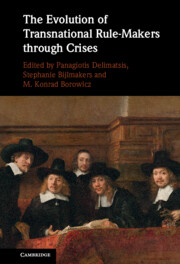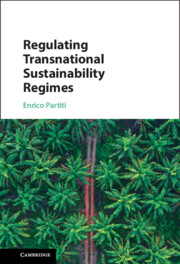Refine search
Actions for selected content:
7 results
Epilogue
- from Part V - Resilience in Technical Standardization
-
-
- Book:
- The Evolution of Transnational Rule-Makers through Crises
- Published online:
- 27 July 2023
- Print publication:
- 10 August 2023, pp 343-356
-
- Chapter
-
- You have access
- Open access
- HTML
- Export citation

The Evolution of Transnational Rule-Makers through Crises
-
- Published online:
- 27 July 2023
- Print publication:
- 10 August 2023
-
- Book
-
- You have access
- Open access
- Export citation
Introduction
-
- Book:
- The Law and Practice of Global ICT Standardization
- Published online:
- 09 February 2023
- Print publication:
- 16 February 2023, pp 1-8
-
- Chapter
- Export citation
1 - ICT Standardization as a Normative Regime
- from Part I - The Ecosystem of ICT Standardization
-
- Book:
- The Law and Practice of Global ICT Standardization
- Published online:
- 09 February 2023
- Print publication:
- 16 February 2023, pp 11-41
-
- Chapter
- Export citation

Regulating Transnational Sustainability Regimes
-
- Published online:
- 12 May 2022
- Print publication:
- 12 May 2022
Introduction
-
- Book:
- Regulating Transnational Sustainability Regimes
- Published online:
- 12 May 2022
- Print publication:
- 12 May 2022, pp 1-16
-
- Chapter
- Export citation
Conclusion
-
- Book:
- Regulating Transnational Sustainability Regimes
- Published online:
- 12 May 2022
- Print publication:
- 12 May 2022, pp 281-298
-
- Chapter
- Export citation
